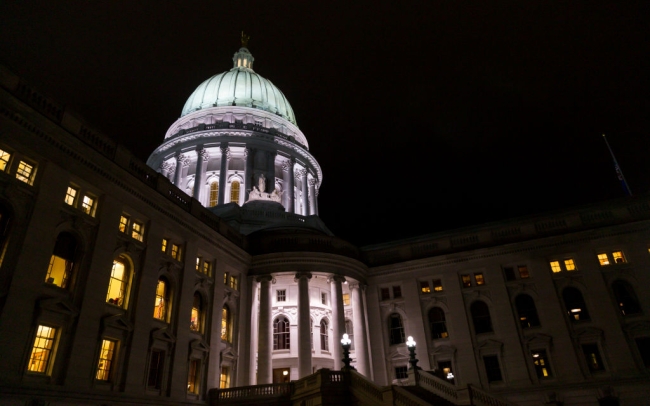You have /5 articles left.
Sign up for a free account or log in.

The Wisconsin State Capitol in Madison, where legislators and UW system leaders tried—and failed—to come to a deal on DEI spending last week.
Andy Manis/Getty Images
A six-month standoff between the Universities of Wisconsin and Republican state legislators appeared to be drawing to an end last weekend after system leaders reached a deal to free up $800 million in funding in exchange for cuts and wide-ranging changes to the system’s DEI initiatives. But the Board of Regents unexpectedly shot down the proposal in a nail-biting 9-to-8 vote on Saturday after a public campaign to reject the deal gained steam.
As the dust settles and all three parties go back to the drawing board, the potential consequences of that vote are just becoming clear.
On Monday Wisconsin Assembly Speaker Robin Vos, who spearheaded the first move in the ongoing war of attrition over the funds back in June, said that he hopes the board reconsiders its decision; he has no plans to return to the negotiating table with system leaders and hammer out a new arrangement.
“This deal was negotiated in good faith,” Vos told local radio station WISN-AM. “We’re not changing one thing in this deal … If they want to walk away, they can walk away.”
System president Jay Rothman now faces anger from all sides: from the left over a deal that was criticized for “selling out students and faculty of color,” as one Democratic state lawmaker put it to Inside Higher Ed, and from the right for failing to push through a deal that many believe would have been a significant win for Republicans’ national anti-DEI agenda.
Student regent Evan Brenkus told The Milwaukee Journal-Sentinel that in the days leading up to the failed vote, Rothman told board members he would consider resigning if the proposal didn’t pass.
“I'm eager to see if he follows through [with] his threat,” Brenkus wrote in an email to the Journal-Sentinel.
The Board of Regents is holding a special closed session meeting Tuesday to “deliberate and negotiate funding proposals and matters” in the wake of Saturday’s close vote, and in the continued absence of hundreds of millions in state funds for the system.





